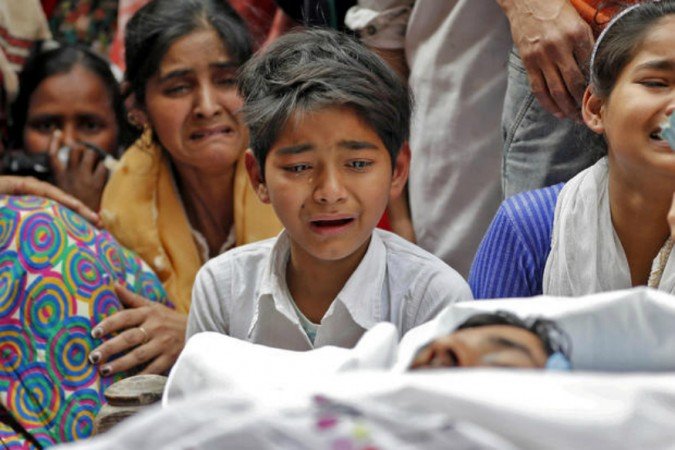
Optimism is a great feeling and it is the job of a teacher to ensure that the students see the best in everything or everyone despite the existing troubles and problems. But my great social concern is that optimism is fast fading. The existing framework of all democracies is based on universal principles, norms and standards. However, one has to assume that as often as not, individuals (leaders) of poor skills enter into positions of responsibility and authority. With their entrenched behaviours soaked in the Alexis de Tocqueville suggested “leader’s personal psychological problems”, these leaders generate legitimacy for their foul political endeavours — the kind the Prime Minister of India is engaging in today. The huge gap between their ‘moral pronouncements’ and policies is leading to the recession of public optimism and a possible future world of more insecurity and troubles. Human-induced problems are not the only ones that we face today; even nature is displaying growing consistency in being not so kind.
The coronavirus, as it creeps in and knocks at the state’s doors, stands out as a great threat. But human resilience will stand up and combat it like it did the Black Death (Black Plague) in the 14th century, which killed up to 60% of Europe’s population alone and thus reducing the world’s population from an estimated 475 million to 350 million. But it’s not the coronavirus that is the main concern (as the science and technology enabled 21st century should hopefully be able to find a vaccine soon) it is the other virus — the virus of populism, protectionism and nationalism — that continues to eat liberalism and is thus more dangerous. Saffron mobs that run amok in New Delhi today are a true reflection of this virus.
Why is order disappearing? What is causing globalisation (the world’s interconnectedness and interdependence) to disappear? Democracy, which was the core component of this liberal order and which, over the years, gifted us a rising middle class (3.7 billion people which is 48% of the world’s population) is receding and there is no better example of how this democratic recession is taking place than the one being demonstrated by the biggest democracy in the world — India. The great trinity of liberalism and the liberal international order was based on three essential components that were predicted to dominate the world — peace being the preferred form of relations between states; democracy the preferred form of organising relations between them; and free markets acting as the vehicles of wealth, growth and development. One doesn’t have to go far and only observe the current Indo-Pak relations to measure and judge how a populist leader with an exclusive national agenda in India is causing the virus of illiberalism to damage and eat up the reduced amount of remaining goodwill of this relationship. History is witness that when Saddam Hussein, a populist and authoritarian leader of Modi’s kind with a ‘Hitlerish mindset’ challenged the status quo of the existing liberal order, the world got together to punish him. Maybe the world is waiting for the Indian Prime Minister to execute (for the purpose of territorial acquisition) a similar Saddam-like cross-border military invasion to come together and stop him?
That so many people in so many different parts of the world are prepared to risk so much for the idea of democracy is testimony to how enduring democracy’s appeal is. But PM Modi showcases to the world that instead of becoming a democrat, becoming an autocrat is easier — an autocrat that not only usurps the rights of minorities but allows mobs chanting the slogans of Jai Shri Ram to burn the properties of and murder the unarmed and innocent Muslims in its own capital city. Democracy was supposed to allow people the right of protection to their lives and property, and more fundamentally, allow them to feel secure to work hard to shape their own and their children’s future. But what is democracy doing in India?
Will the world wake up and tap on its sleeping conscience? How can we even say that we live in a moral world which now runs its affairs on the UN-mandated “responsibility to protect”? It is not half a dozen days but months that the India-Occupied Kashmir has been locked down and a return to a normal life has been denied to the people of Kashmir. The closed, inaccessible and populist internal illiberal democratic order that the Modi government has created is a prime example of how a very materialistic world has become very selective in condemning the world’s worst autocrats.
The President of the US, the superpower which is the creator, promoter and sustainer of the world order, was in India and what he takes back with pride to the US is the $3 billion military purchases deal that he extracted from the Indians. That kind of sums up what stands out on the developed world’s list of priorities.
In the ‘winner takes it all’ democracy introduced by the BJP-led Modi government, there is no room for liberty and equality. The growing chaos in India is a proof that the lack of application of the principles of democracy is a recipe for instability. What PM Modi needs from the US is not weapons but a reminder on the democratic principles and norms and maybe a copy of the American Charter of Independence for him to read.
An absolute obliterator and no way a promoter of Indian democracy is what the Indian Prime Minister is.
Published in The Express Tribune, March 1st, 2020.
Like Opinion & Editorial on Facebook, follow @ETOpEd on Twitter to receive all updates on all our daily pieces.
1725354252-0/Untitled-design-(5)1725354252-0-405x300.webp)
1732099866-0/adele-(3)1732099866-0-165x106.webp)















COMMENTS
Comments are moderated and generally will be posted if they are on-topic and not abusive.
For more information, please see our Comments FAQ